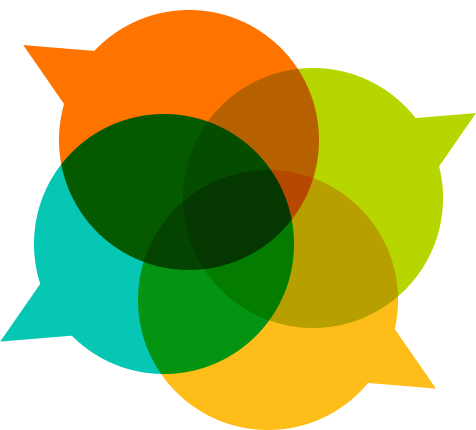Inviting and hosting a community to learn together requires a good understanding local interests and needs. By working with partner organizations and networks, building strong relationships between you and people around you, and outreaching to specific audiences, you’ll be much better suited to know what people in your local area want to learn and how to reach them.
Here is the feedback from our Community Call on understanding and researching local interests and needs (February 15, 2019):
Guiding themes
- Relationships produces results
- Build the community of learners
Tools and strategies
-
Q-Method
- Ex. I put this display right at the reference desk at our branch - it allows for our staff to interact and chat with those that approach the display too.
- App similar to Q-method Mentimeter, Sli.do. Could be used to project results as data comes in.
-
Host a focus group
- In Kenya, libraries run mini focus group as part of their learning circle training. They get a quick idea of what their local library patrons are interested in and their digital literacy skills which they can use for discussion as they continue their training workshop.
- Some libraries have offered a learning circle teaser or public orientation where they introduce the concept of learning circles through an informal meeting or large presentation and, through these meetings, they also receive feedback about what people are interested in learning
- Ex. We offered a presentation on how people can use Lynda.com and through this we also asked about their interests.
- Assess interests of current students or patrons
- Observation and insights gathered from each branch and location is key
- Ex. “I offer 1-on-1 tech assistance and work the info desk at the library adjacent to our public computers. I see what types of needs folks have (at least in the digital literacy realm).”
- Ask local businesses
- Ex. I’ve visiting a number of local businesses and simply asked what skills they are missing.
- Promotion
- Use Next Door. Private social network for your neighborhood. It makes it possible to reach a number of people in our community at once.
- Ex. “We make a sign outside of the church. “Free computer class - call this number”: We ask people when they call “can you copy and paste?” If no, then we know it’s digital literacy basics.”
- Gather data
- Use collections data. Ex. If certain non-fiction collections are getting checked out more, it might be something to consider focusing on. However, of course each library system separates their collections differently so they may not separate out certain collections as we do.
- Use online learning databases and stats like through lynda.com
- Create partnerships
- National or regional partners have a good understanding of the needs and interests of people who may not be connected to your community agency or library. They might also host local meeting or meetups which you can support, host or collaborate with.
- Goodwill industries: https://goodwillindustries.ca/. They have employment specialists and they tell their clients what the library is offering. Libraries could offer different skills that that goodwill is not offering.
- Housing authorities: We bring digital literacy skills regional apartement cla complexes (that have a community room).
- NTEN: https://www.nten.org/
- Linux Professional Institute / CISCO: https://www.lpi.org/
- Nanowrimo https://nanowrimo.org/
- DCARA: https://dcara.org/ One of The First Deaf-Run Nonprofit In The United States
- National or regional partners have a good understanding of the needs and interests of people who may not be connected to your community agency or library. They might also host local meeting or meetups which you can support, host or collaborate with.
- Outreach to specific communities and networks
- Parents at early education centers.
- Caretakers who may want to learn more about self-care for themselves and limiting social isolation.
- Small business development centers
Additional assessment and outreach resources

